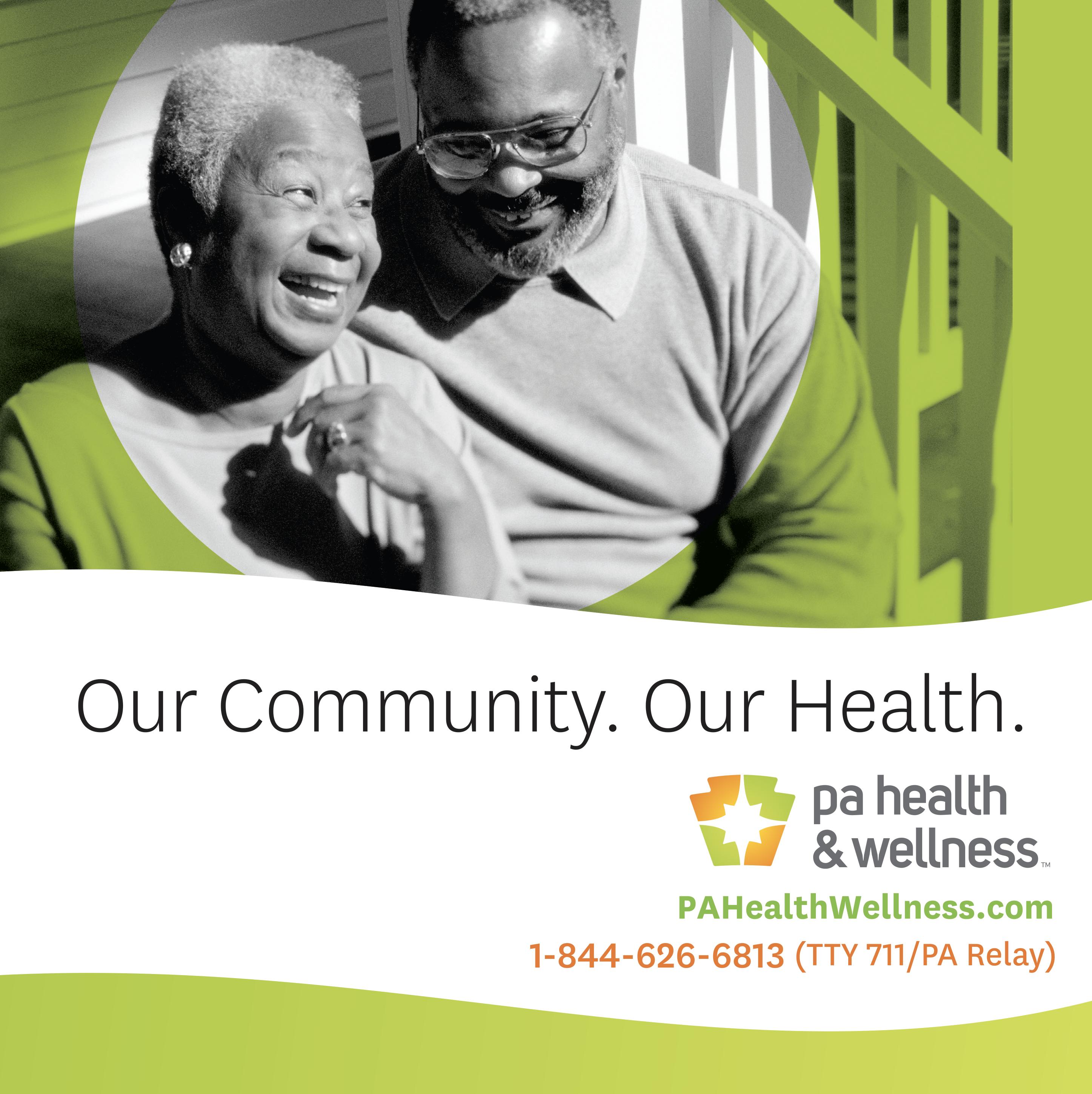


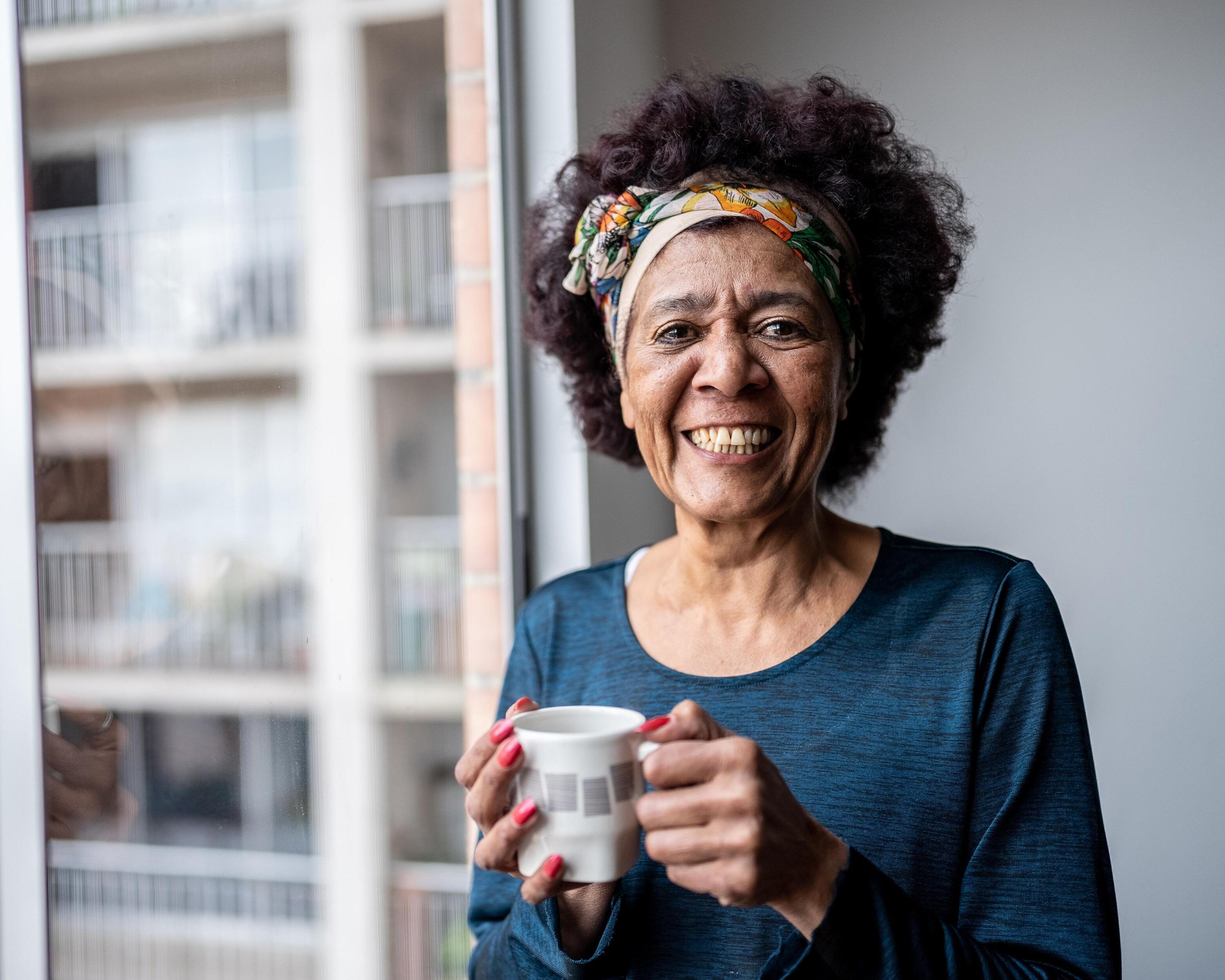





Philadelphia Corporation for Aging (PCA) is the Area Agency on Aging for Philadelphia County and is dedicated to serving Philadelphia’s older adults and adults with disabilities.
PCA publishes Milestones and offers:
• Care in the home
• Home-delivered meals
• Home repairs and modifications
• Protective services
• Senior centers
• Caregiver support
• Grandparents & relatives raising children
• Employment and volunteer programs
• Legal services
• Transportation
• Ombudsman services
• Health education
• Information and referral

Report suspected elder abuse 24/7 to the PCA Helpline: 215-765-9040 or pcaCares.org.
Published by Philadelphia Corporation for Aging
Najja R. Orr, DBA, FCPP President and CEO
PCA Board of Directors 2024
Glenn D. Bryan, Chair
Louis G. Colbert, Vice Chair
Eloise Young, Treasurer
Lynn Fields Harris, Secretary
Satya B. Verma, O.D., Immediate Past Chair
Denise Adamucci
Louis A. Bove, Esq.
Nora Dowd Eisenhower, Esq.
Wilmarie Gonzalez
Sandra McNally
Paul Nathanson
Norma D. Thomas, D.S.W.
John Whitman
Jacqueline S. Zinn, Ph.D.
Emeritus: Arthur E. Helfand, D.P.M.
Milestones is published monthly and distributed at more than 1,100 locations throughout Philadelphia.
Check us out online: pcaCares.org/ Milestones
Editor: Alicia M. Colombo 215-765-9000, ext. 5081 PCA, 642 N. Broad St. Philadelphia, PA 19130
Email: MilestonesNews@pcaCares. org
Advertising: Teresa Heavens 215-765-9000, ext. 5053
Email: Teresa.Heavens@pcaCares. org
Subscriptions & Distributions: Home delivery: $12/year
The views expressed in Milestones are not necessarily those of Philadelphia Corporation for Aging (PCA). Milestones will not knowingly accept or publish fraudulent or misleading advertising. Milestones reserves the right to edit, revise or reject ads. Milestones assumes no responsibility for errors, misprints, omissions or misinformation; for failure to publish an ad; or for any damages of any kind. Neither the publisher nor any other party is rendering expert advice in this publication. No part of this newspaper may be reproduced without the permission of PCA. ©2024 Philadelphia Corporation for Aging. All rights reserved.

By Najja R. Orr, DBA, FCPP PCA President & CEO
Summer is a great time to explore the outdoors and to take advantage of all that our wonderful city has to offer!
Philadelphia’s robust urban park system encompasses 10,200 acres of public land and waterways, as well as hundreds of recreation, environmental and cultural centers, according to Philadelphia Parks and Recreation. (For more information, call 215-683-3600 or go to phila.gov/parks.) The offerings include:
• Parks, recreation and senior centers, and pools.
• Signature city events and important historic and cultural sites.
• Recreation paths, trails and boat launches.
• Community gardens, farms and orchards.
• Environmental education centers.
• Golf courses.
You can even be a tourist in your own city. Each year, more than 1.3 million people come to Philadelphia’s visitor centers for free information and access to all the city’s offerings. (For more information, call 1-800537-7676 or go to PhlVisitorCenter.com.)
While you are outdoors enjoying the sum-
mer in Philadelphia, make sure to keep safety in mind. Always protect yourself from the sun and heat by wearing sunglasses, sunscreen and a hat. Bring a refillable water bottle with you, and drink plenty of water throughout the day to stay hydrated. It is also a good idea to bring a snack, like nuts, a granola bar or fruit, in case you get hungry.
If you have a cell phone, bring it with you and make sure it is fully charged before going out. Make a list of your medications, allergies and major health conditions. Carry it with you, where someone can find it in an emergency. Make sure you pay attention to your surroundings.
It is not recommended to listen to music through headphones while walking. However, if you do, use only one earbud, so the other ear is free to listen for traffic or other obstacles.
On especially hot days, your best bet is to stay indoors where it is air-conditioned. This is a great opportunity to spend the day at one of the 28 senior community centers and satellite meal sites that PCA supports. Senior centers are the best recreational venues for older adults in Philadelphia, and there is a location right in your neighborhood. Stop by to cool off from the heat, make new friends, enjoy a nutritious meal, exercise, take a class and more. To find a senior center near you, call the PCA Helpline at 215-765-9040 or go to pcaCares.org/senior-centers.
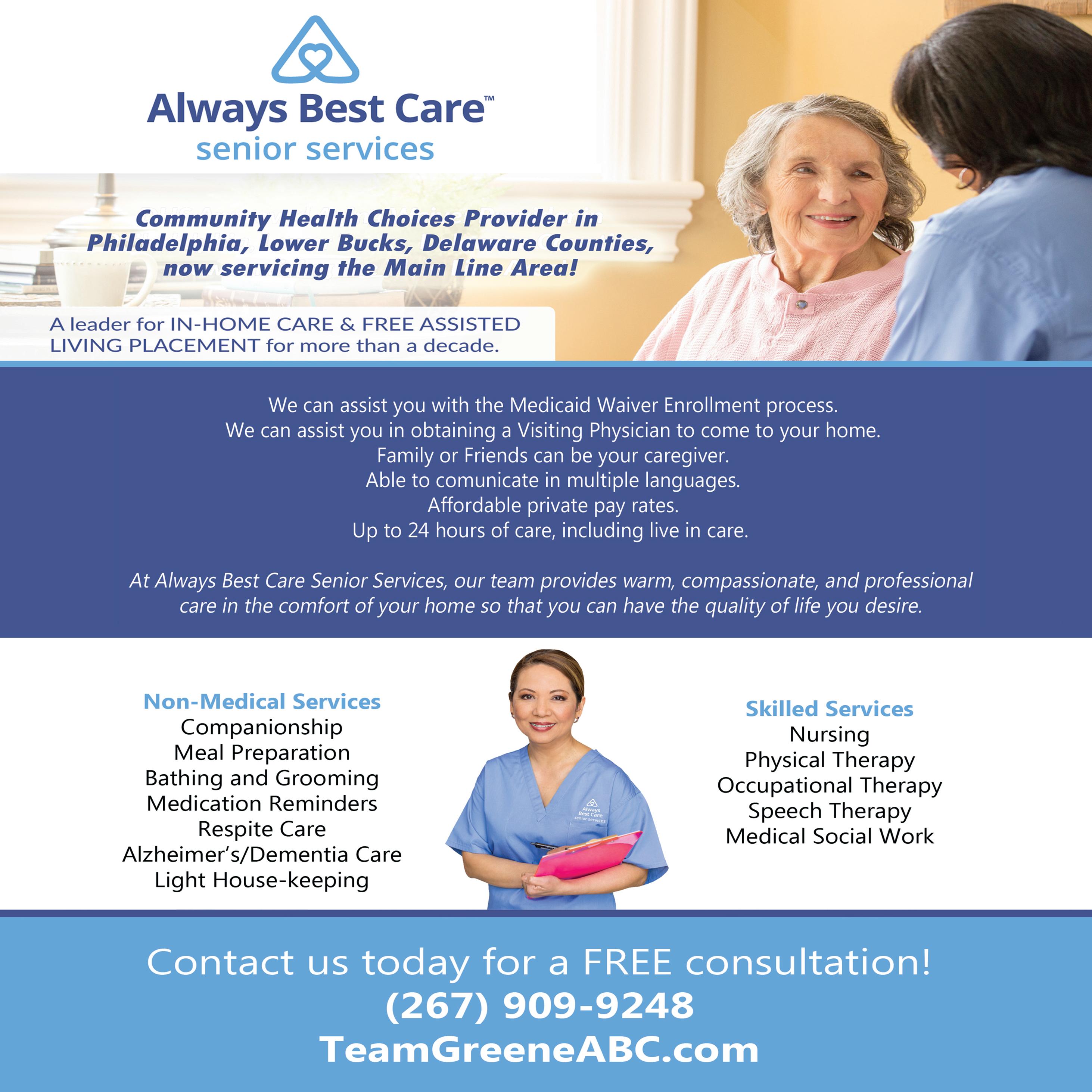
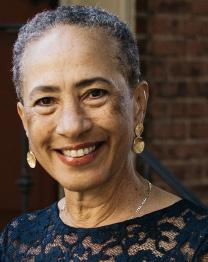
In addition to “Ladysitting,” Cary, 67, wrote the memoir “Black Ice,” three novels, a book for young readers, and the play “My General Tubman.” The Southwest Philadelphia native also teaches at the University of Pennsylvania and currently lives in the Graduate Hospital area.
woman and her caretaker granddaughter. “Nana loved living on her own, so living in someone else’s house—that was difficult for her,” Cary said.
By Jay Nachman
After her “Nana” died in 2008, writer Lorene Cary needed time to absorb her grief and the complex, life-changing experience.
When Cary was ready, she went to work and wrote “Ladysitting: My Year with Nana at the End of Her Century,” which was published in 2019. Cary turned the memoir about caring for her grandmother at the end of her life into a 30-minute opera and a play, “Ladysitting,” which was commissioned by the Arden Theatre in Philadelphia and held its world premiere at the theater in January.
Her motivation to write the book was to “understand loss. I’m at the point in my life, I am a senior citizen. I need to understand and accept death. That is what I was learning.”
As a child, Cary would visit her Nana and Poppop, Lorene, and Earl Jackson, at their home in West Collingswood, NJ, on weekends. There, Cary, a self-described introvert as a child, could do as she pleased, whether making up stories, playing the piano, digging in the yard, or listening to her nana’s classical, spiritual, and jazz records. “I was perfectly happy, really happy, to be on my own in their lovely house, indoors and out. It was a cozy haven for me. I loved it.”
When she was older, her grandparents would take her to movie musicals. Then, the following weekend, the cast album from the play they had seen would be waiting for Cary to play over and over until she knew it by heart.
Nana worked until she was 94 as a trustee of a small real estate parcel in South Philly. She lived in her West Collingswood home until she was 99. After being hospitalized with a bladder infection, she moved in with Lorene and her family.
Cary felt it was her duty to take care of her, but also, she had the ability to do so. There was, at times, contention between a strong-willed
Ladysitting became the way they referred, “in front of her, rather than behind her back, to the arrangements we’d make so someone was staying with her.” Once, Nana said with derision, “someone has to come babysit me.”
“No, no, no, it’s not babysitting; it’s ladysitting,” Cary replied. “We all laughed at that, and it allowed her to save face about her increased debility and dependence, which galled her. Any dependence just galled her. So, it was our way of not humiliating her.”
In her book “Ladysitting,” Cary shares stories of five generations of her African-American family, while weaving a narrative of her complicated relationship with Nana―a fiercely independent and often stubborn woman whose family fled the Jim Crow South, Cary captures the ruptures, love, and forgiveness that can occur in family as she bears witness to her grandmother’s vibrant life.
What did Cary learn from her year of caretaking?
“For other caretakers my advice would be to seek out and accept
every bit of help you can find and to do it before you run yourself into the ditch,” she said. “And to keep in mind that things in caretaking will go wrong. And particularly if you’re caring for someone who is not simply disabled but is dying. We have a society that says if the person dies, if the person isn’t well, it’s because the caretaker has done something wrong. It’s not. And figure out how to get enough help so that you don’t feel as if you’re doing something wrong as the person weakens. It’s very important.”
Philadelphia Corporation for Aging provides resources, information and training to assist caregivers through its Caregiver Support Program. For information, call the PCA Helpline at 215-7659040 or go to pcaCares.org/caregivers.
(See page 15 for crossword)

By Jeremy Rodriguez
When shopping online, it can be tempting to get lost in the sales. However, this can also make one vulnerable to scammers. That is why it is vital to have your wits about you when navigating the world of online shopping.
The Federal Deposit Insurance Corporation (FDIC) provided some examples of online shopping scam risks.
• Fake websites and apps. Scammers may create platforms that look similar to other online shopping platforms or direct you to apps that contain malware, software designed to gain access to information or computer systems. These may trick you into providing personal information or get you to spend money to purchase items and never receive them.
• Email links. These may come from senders that mimic real companies. Look for suspicious details such as typos or
The Federal Trade Commission (FTC) provided some tips in November 2023 to protect yourself when shopping online. These tips include:
• Pay by credit card. If you’re charged multiple times or if you receive an incorrect or damaged item, you can easily dispute the charge.
your money back.
You can never be too safe from online shopping scams. If a seller hasn’t lived up to their promises, be sure to report them to the FTC at ReportFraud.ftc.gov.
“too-good-to-be-true”
offers.
• Making payments on unsecure sites. Before making a payment online, check to make sure a lock icon along with “https” appears next to the website URL, which illustrates that the site is safe.
• Using public Wi-Fi to shop or access sensitive information. Using public Wi-Fi — such as in a coffee shop, hotel, or library — does not always provide a secure connection. Using it can potentially expose your banking and other personal information to hackers. Stick to websites with the “https” when in public spaces.
• Package delivery confirmation scams. This occurs when someone claims to be from the U.S. Postal Service or a major shipping company and says you have a package waiting for delivery. You’ll then be prompted to provide your personal information, which the scammer will collect for their own devious purposes.
• Check out the company. This can include a simple web search of the company’s name along with terms like “scam” or “fraud.”
• Keep records. Monitor bank statements and order shipment dates. Sellers must ship the item by the promised date or offer you a chance to get
Reports of financial exploitation and other forms of elder abuse of older Philadelphians can be made 24/7 to Philadelphia Corporation for Aging at 215-765-9040.
If you know an older adult in Philadelphia who may be experiencing financial exploitation, please contact PCA’s Older Adult Protective Services by calling the PCA Helpline at 215-765-9040. All calls are confidential.
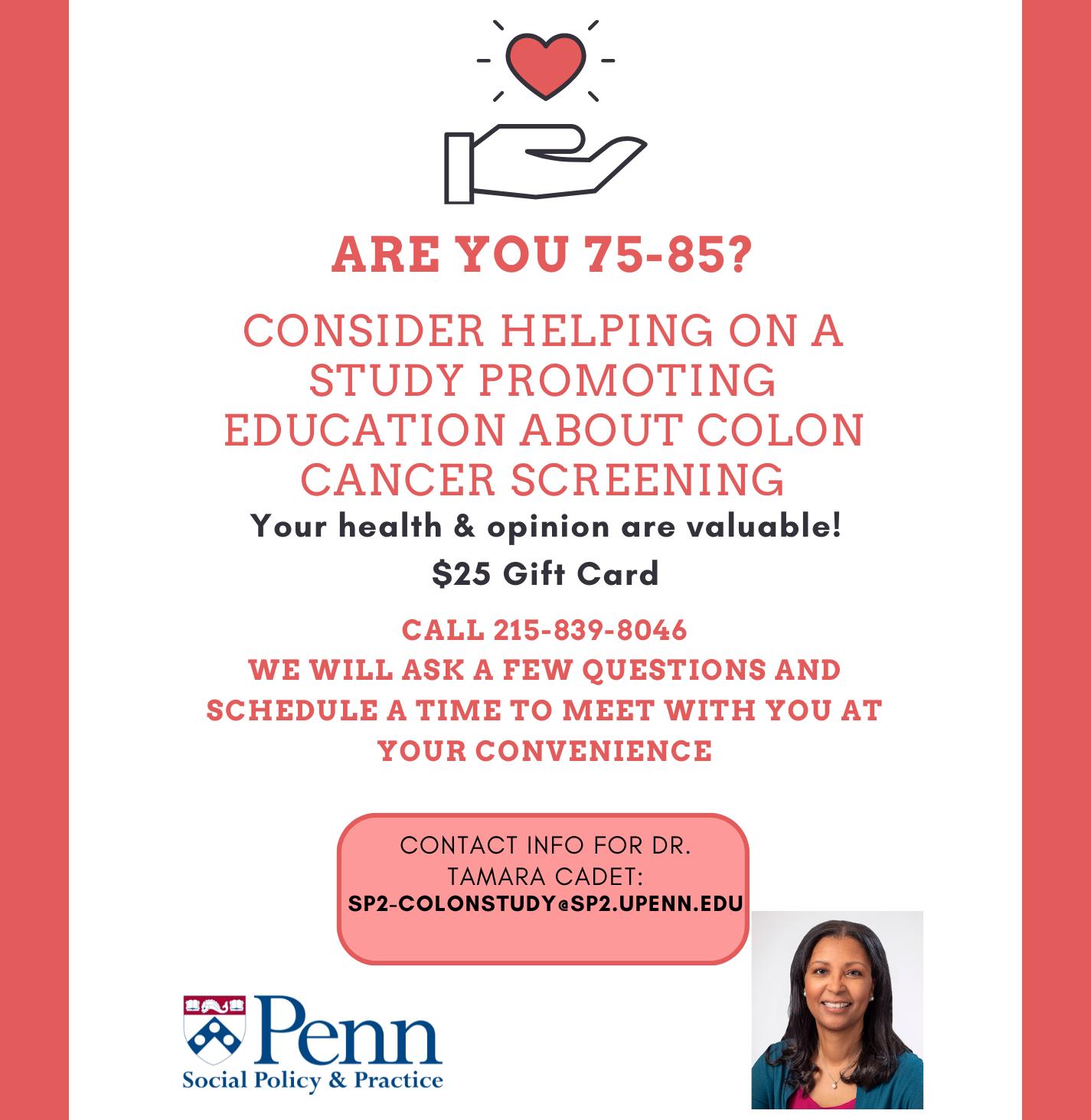
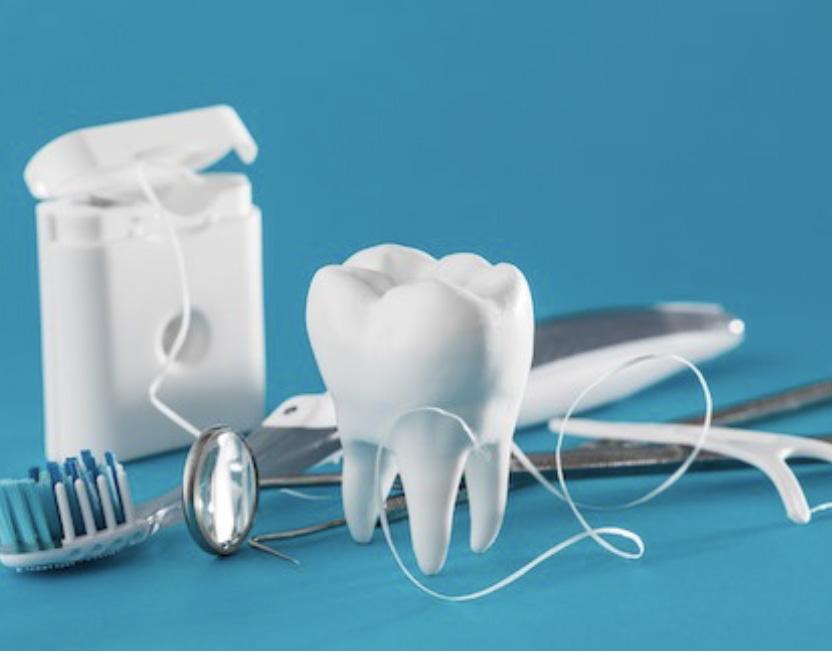
By Alicia Colombo
New oral challenges often develop as you grow older. Common dental problems that seniors experience include dry mouth, tooth decay, gum disease and oral cancer. Your oral health affects nutrition, digestion, speech, self-esteem, quality of life and social interactions. If left untreated, these dental conditions can lead to tooth loss and other serious problems, such as malnutrition.
Nearly 1-in-5 adults aged 65 or older have lost all their teeth, and complete tooth loss is twice as prevalent among adults 75plus, according to the Centers for Disease Control and Prevention (CDC).
Here are some of the most common dental conditions that affect people 65 and older, along with tips from the American Dental Association (ADA) to help you keep your teeth.
The ADA refers to late life as your “second round of cavity-prone years,” because 96% of older adults have at least one cavity and 20% currently have untreated tooth decay. One common cause of tooth decay and cavities in older adults is dry mouth. While dry mouth is not a normal part of aging, it is a side effect of more than 500 medications, including those for chronic conditions such as hypertension, high cholesterol, anxiety or depression, and Parkinson’s and Alzheimer’s diseases. This underscores the importance of informing your health care professional about any medications that you’re taking.
• Use over-the-counter oral moisturizers, such as a spray or mouthwash.
• Drink more water. Your mouth needs constant lubrication. Carry a water bottle with you, and don’t wait until you’re thirsty to drink.
• Use sugar-free gum or lozenges to stimulate saliva production.
• Get a humidifier to help keep moisture in the air.
• Avoid coffee, alcohol, carbonated soft drinks and acidic fruit juices.
• Ask your dentist about fluoride gel or varnish to protect your teeth from cavities.
Almost 70% of older adults have periodontal (gum) disease, according to the CDC. Gum disease is caused by bacteria in plaque, which irritates the gums, making them swollen, red and more likely to bleed. If left untreated, gums can begin to pull away from the teeth and form deepened spaces, called pockets, where food particles and more plaque may collect. Often painless until the advanced stage, gum disease can destroy the gums, bone and ligaments supporting the teeth leading to tooth loss. The best way to prevent tooth decay and treat gum disease, at any age, is to brush with fluoride toothpaste twice a day, floss your teeth daily, and visit the dentist at least once a year for a checkup and cleaning.
According to the American Cancer Society, there are tens of thousands of cases of mouth, throat
and tongue cancer diagnosed each year. Oral cancers are primarily diagnosed in older adults, with an average age of diagnosis at 62. Regular dental visits, which include an oral cancer screening, are vital since the early stages typically don’t cause pain. Some symptoms of oral cancer may include open sores, white or reddish patches, and changes in the lips, tongue and mouth that last for more than two weeks.
Low-cost dental care can be costly for older adults, since Medicare does not cover routine dental care and some states limit dental coverage under Medicaid. This is especially troubling, since the CDC contends that Americans with the poorest oral health tend to be those who are economically disadvantaged and lack insurance or access to dental care. Here are some suggestions for low-cost dental insurance or care:
• Some organizations, like AARP, offer supplemental dental insurance plans to their members.
• Federally Qualified Health Centers: 1-877-464-4772 or FindaHealthCenter.hrsa.gov
• Dental Lifeline Network helps provide access to care for seniors 65-plus, who have a permanent disability or are medically fragile: 724568-4343 or DentalLifeline. org/Pennsylvania.
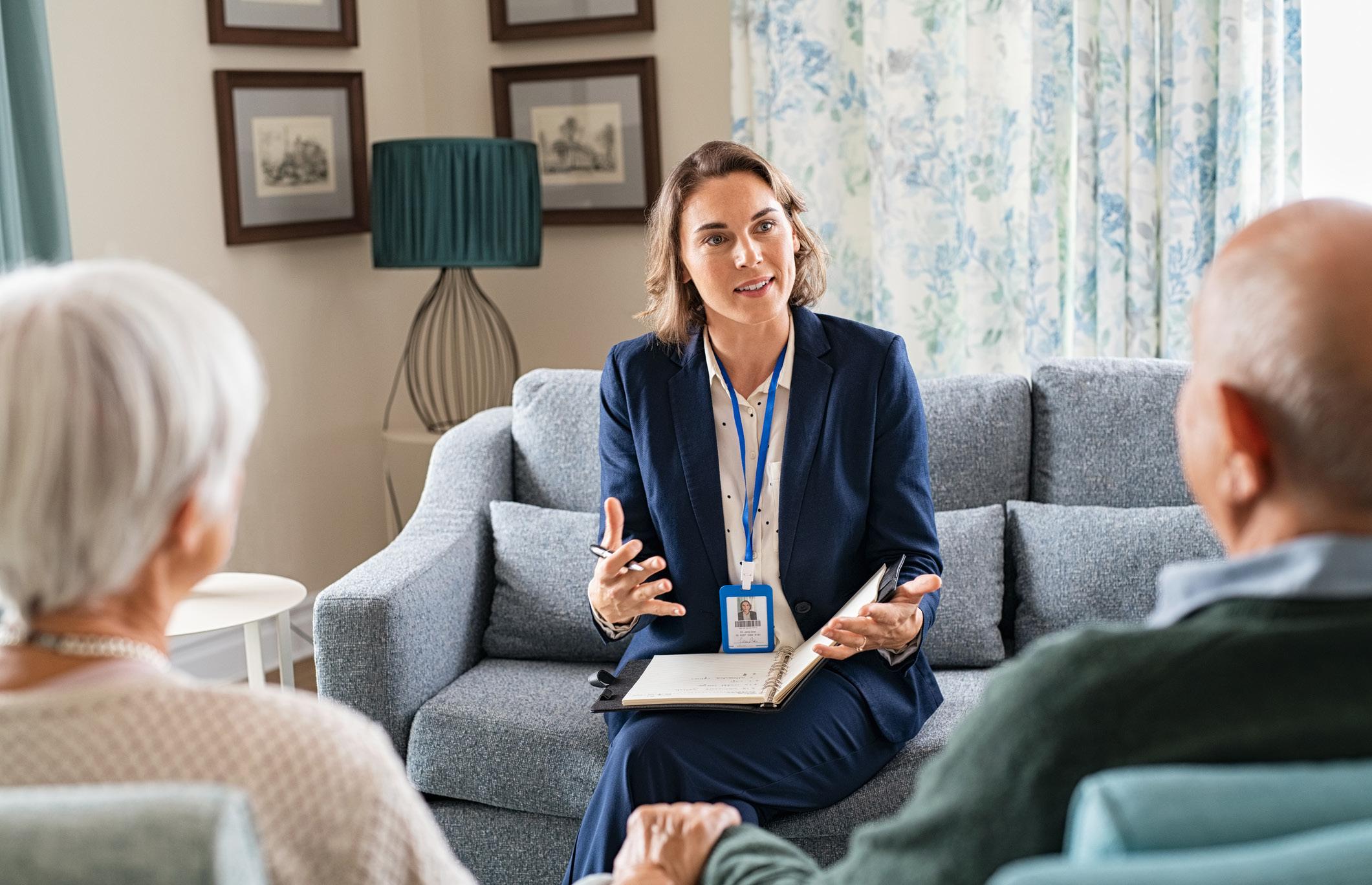
By Bill Conallen
As communities across the country experience a significant demographic shift toward an aging population, the importance of long-term services and supports (LTSS) for older adults becomes increasingly paramount. LTSS encompasses a range of services aimed at ensuring the well-being and quality of life for adults who are older or living with disabilities who may require assistance with daily activities.
Philadelphia Corporation for Aging (PCA) recognizes the importance of addressing these needs and has developed a range of programs to help older adults maintain their independence, improve their overall well-being, and access the resources they need to age in place.
LTSS plays a crucial role in preserving dignity and quality of life for older adults. As individuals age, they want to stay as independent as possible. Howev-
personal care and light housekeeping. Additionally, the OPTIONS program offers respite care for family caregivers, allowing them to take a break and recharge while their loved ones receive the care they need — adult day services for individuals who require a safe and structured environment during the day; personal emergency response buttons; home-delivered meals; medical equipment and supplies; and home modifications, such as shower grab bars.
er,`performing essential activities of daily living may become more challenging. Services coordinated through PCA, such as assistance with personal hygiene, mobility and medication management, help facilitate a person’s autonomy.
To initiate many of these critical supports, PCA starts with conducting a thorough in-home assessment of an older adult’s physical, mental, social and functional abilities and needs, using evidence-based assessment tools approved by the Pennsylvania Department of Aging to quantify the level of care and needs in the home.
The outcome of the assessment includes enrollment into the most appropriate care program. One example includes the OPTIONS program, which provides older adults with essential services in the comfort of their own homes. One example of these essential services includes providing a trained personal care aide to offer daily services, including meal preparation,
OPTIONS participants must be at least 60 years of age and a legal Pennsylvania resident. Additionally, the individual must experience some challenges that impact daily functions.
“Home care is any service that
is provided in a person’s home, away from a facility, to support independent living,” said Shani Gilmore, PCA’s executive administrator of long-term care. “Home care can include assistance tasks, such as bathing, dressing and grooming, which are what we call ‘activities of daily living.’ Providing home care can enable older adults to stay in their homes for as long as possible, to age in place, rather than having to seek another less independent living situation, such as a nursing home.”
The Domiciliary Care Program (Dom Care) matches certified home providers with those in need of a caring, supportive home.
(Continued on Page 10)

2:00 p.m.–6:00 p.m. | Wolcoff Auditorium 5800 Ridge Ave., Philadelphia, PA | 19128 | Questions, please call (215) 785-9374
Unlock your potential and join our dynamic healthcare team! Meet our hiring managers and bring your resume to take the first step towards a fulfilling career. We have various departments, roles, and flexible scheduling options available, including full-time, part-time, per-diem, and temporary opportunities.
DON'T MISS OUT ON THIS CHANCE TO ENHANCE YOUR CAREER!

July 2024
JULY 1
CROCHET, KNITTING & STITCHING CLASS
Feel free to bring a project or start a new one, as you meet with other fiber arts crafters. 5:30 p.m. Whitman Library. 215-685-1754 | Free
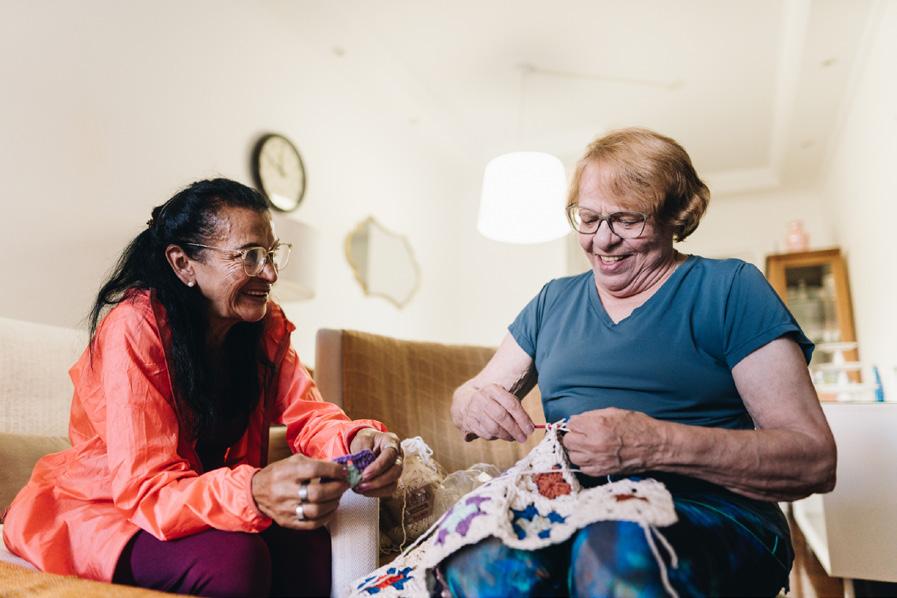
JULY 2
OLDER ADULT STRENGTH TRAINING
This strength & conditioning class, led by a certified instructor, combines hand weights & chair exercises along with cardio work to improve your fitness, strength & balance. 3 p.m. Whitman Library. 215-685-1754 | Free
JULY 4
INDEPENDENCE DAY

JULY 5
Send your calendar items two months in advance to: MilestonesNews@pcaCares.org Questions? Call 215-765-9000, ext. 5081.
TREASURES FROM THE VAULT
Do you love old books? This casual, firsthand book club program spotlights items from the Literature Vault. 2 p.m. Parkway Central Library. 215-686-5402 | Free
JULY 8
COOKING CLASS
Each week, participants learn to cook a new healthy dish, try it & take home the recipe. 10 a.m. Lutheran Settlement House. 215-426-8610 | Free
JULY 9
BEAT THE HEAT TRAINING
Representatives from the Philadelphia Department of Public Health will be on hand to answer questions about how to keep cool this summer, including what to do in a heat emergency and how to get utility assistance. 2 p.m. Oak Lane Library. 215-685-2848 | Free

JULY 11
YOGA FOR OLDER ADULTS
This class is for all levels of practice & beginners are welcome. Bring your own mat or use one of ours. 3:30 p.m. Whitman Library. 215-685-1754 | Free
JULY 12
MIDSUMMER COOL-OFF
Celebrate the season with water ice, pretzels & books. 11:30 a.m. Independence Library. 215-685-1633 | Free
JULY 15
MEDICARE WORKSHOP
Information about the program & resources available. 10 a.m. Parkway Central Library. 215-686-5331 | Free

JULY 16
UPDATING & WRITING YOUR WILL
Learn all about the process involved in writing & updating a will in Philadelphia, including the probate process, from a representative of Philadelphia’s Register of Wills. 5:30 p.m. Oak Lane Library. 215685-2848 | Free
JULY 17
MORNING BINGO
Feeling lucky? Penny & dollar bingo games every Wednesday morning. Bingo boards & chips are provided. Participants are asked to please bring their own pennies & dollar bills. 9:30 a.m. Lutheran Settlement House. 215-426-8610 | $0.01-$1 per game
JULY 18
AGING GRACEFULLY: A WOMEN’S FORUM FOR THE BODY, MIND & SOUL
Free parking & lunch. 10 a.m. to 1 p.m. Philadelphia Corporation for Aging. Register by July 11: 215-765-9000, ext. 4470 or Community.RelationsRSVP@pcaCares.org | Free
JULY 18
ENHANCED FITNESS CLASS
Exercise is a whole lot of fun in this evidencebased exercise program. Participants are led by a certified instructor in an hour-long class focused on dynamic cardiovascular exercise, strength training, balance & flexibility. Noon. Martin Luther King Older Adult Center. 215-685-2715 | Free
JULY 19
LINE DANCING CLASS
Line dancing offers a great form of exercise, the opportunity to enjoy music & make friends. No prior experience necessary. 9:30 a.m. Martin Luther King Older Adult Center. 215-685-2715 | Free
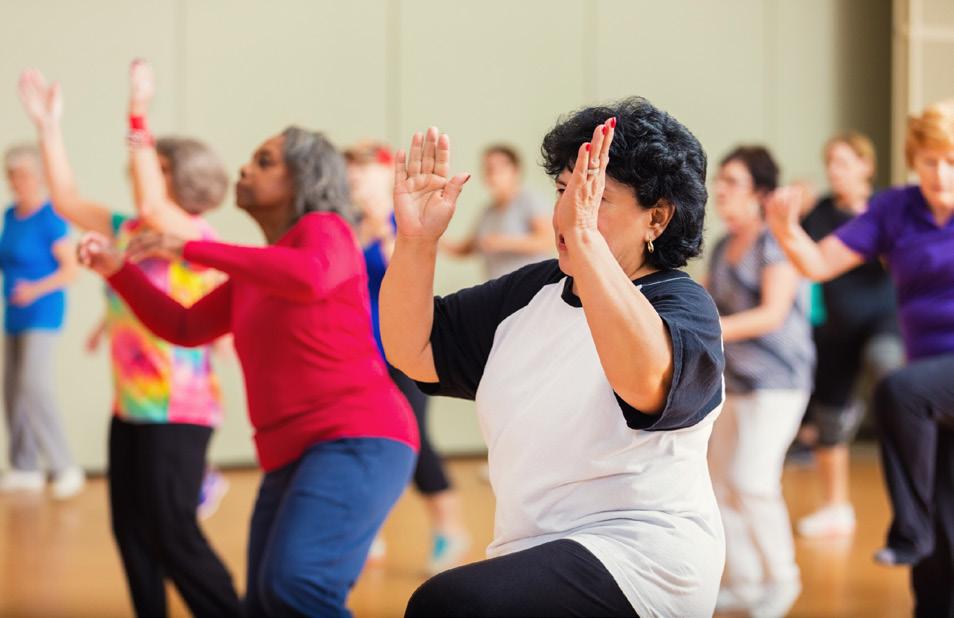
JULY 22
COMMUNITY GAME NIGHT
Play board games, socialize, meet neighbors & have fun. Bring your favorite board games. 5:30 p.m. Falls of Schuylkill Library. 215-685-2093 | Free
JULY 23
COLORING CLASS
Basic instruction, idea sharing, coordinated projects & good company. No experience necessary. 12:15 p.m. Fox Chase Library. 215-685-0547 | Free
JULY 25
A certified instructor will lead the class in computer & internet basics. 9 a.m. Lutheran Settlement House. 215-426-8610 | Free
JULY 29
Master the art of precision, strategy & skill in a fun, engaging environment suitable for all levels. 9 a.m. Center in the Park. 215848-7722 | Free
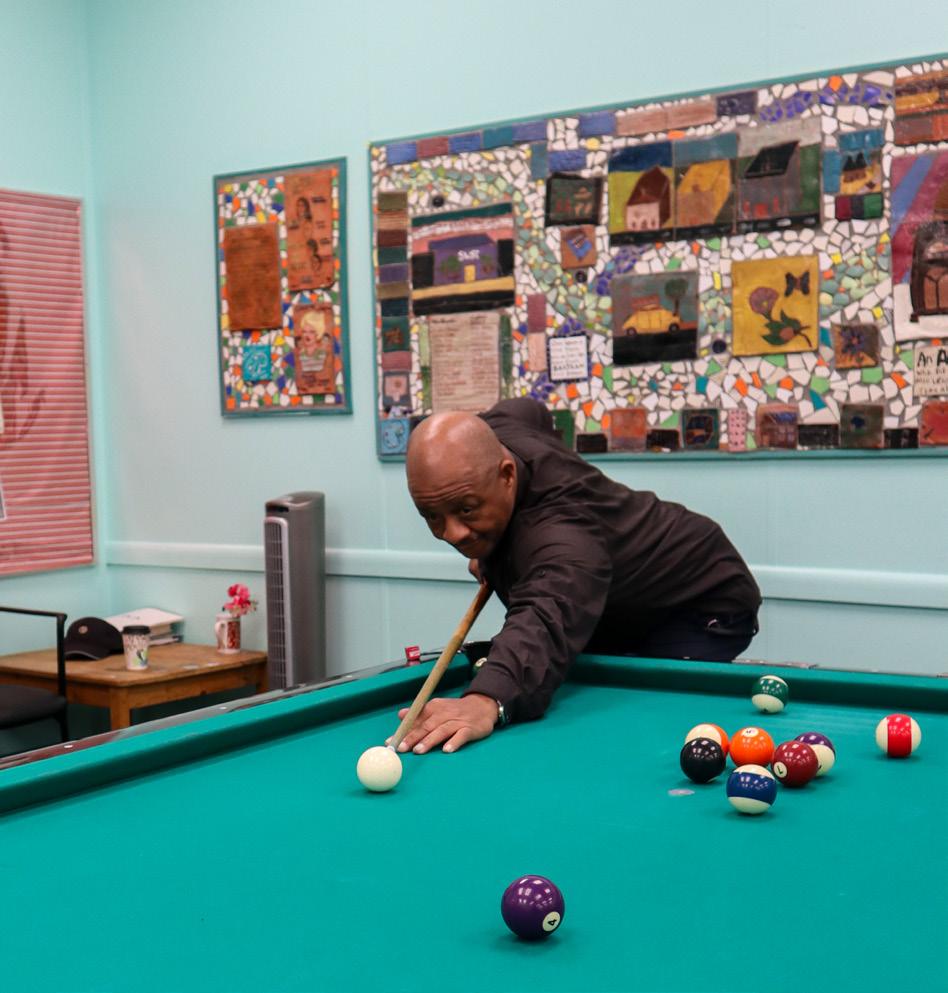
JULY 30
Experience this ancient practice & harmonize your mind, body & spirit through gentle movements & focused breathing in a rejuvenating class. 10:30 a.m. Center in the Park. 215-848-7722 | Free

The PECO Multicultural Series celebrates Philadelphia’s diversity with a series of family-friendly cultural festivals held across the Delaware River Waterfront. 215-922-2FUN | DelawareRiverWaterfront. com/events | Free
• ACANA African Festival: Aug. 4, 2-8 p.m., Cherry Street Pier
• Festival of India: Aug. 17, 12-7 p.m., Cherry Street Pier & Race Street Pier
• Caribbean Festival: Aug. 18, 12-8 p.m., Cherry Street Pier & Race Street Pier
• Brazilian Day Philadelphia: Sept. 8, 1-7 p.m., Spruce Street Harbor Park
• Mexican Independence Day Festival: Sept. 15, 2-8 p.m., Cherry Street Pier
• We Are the Seeds: Sept. 21 & 22, 12-9 p.m., at Cherry Street Pier
• Taste of the Philippines: Oct. 26, 11 a.m. to 5 p.m., at Cherry Street Pier
(Continued from Page 7)
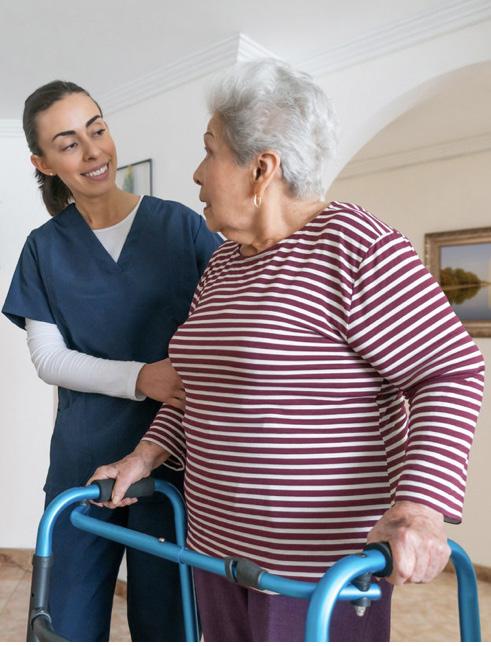
Dom Care residents are unable to live independently, due to physical, emotional or mental impairments, but do not need special around-theclock attention. Providers are people in the community who want to open their homes to provide care for up to two people.
Care managers match individuals and home providers according to their preferences and work closely with them to ensure that the match remains mutually beneficial. In the process, residents receive room and board, as well as help with medication supervision, laundry and medical appointments.
Recognizing that some older adults may require a higher level of care, PCA is proud to offer a comprehensive Caregiver Support Program designed to assist, guide and support people caring for older adults. Acknowledging the crucial role of care-
givers, PCA’s program offers a range of resources, including respite care, counseling and training sessions, to ensure that caregivers have the necessary support to provide optimal care while prioritizing their own well-being. By bolstering the caregiver support network, PCA aims to alleviate stress and enhance the caregiving experience, benefiting the older adults they assist.
“I firmly believe that longterm care services play a vital role in the lives of our older adults, enabling them to age with dignity, independence and the support they deserve,” Gilmore said.
“At PCA, we understand the unique needs of older adults and the challenges they may face. Our long-term care programs are designed to provide comprehensive assistance, advocating for their rights, empowering families and ensuring that older adults have access to the resources they need to thrive. We are committed to making a positive difference in the lives of our community’s elders and promoting a society that values and supports those who have contributed so much.”
For more information about longterm care services for older adults, call the PCA Helpline at 215-765-9040 or go to pcaCares.org/services/help-inthe-home.
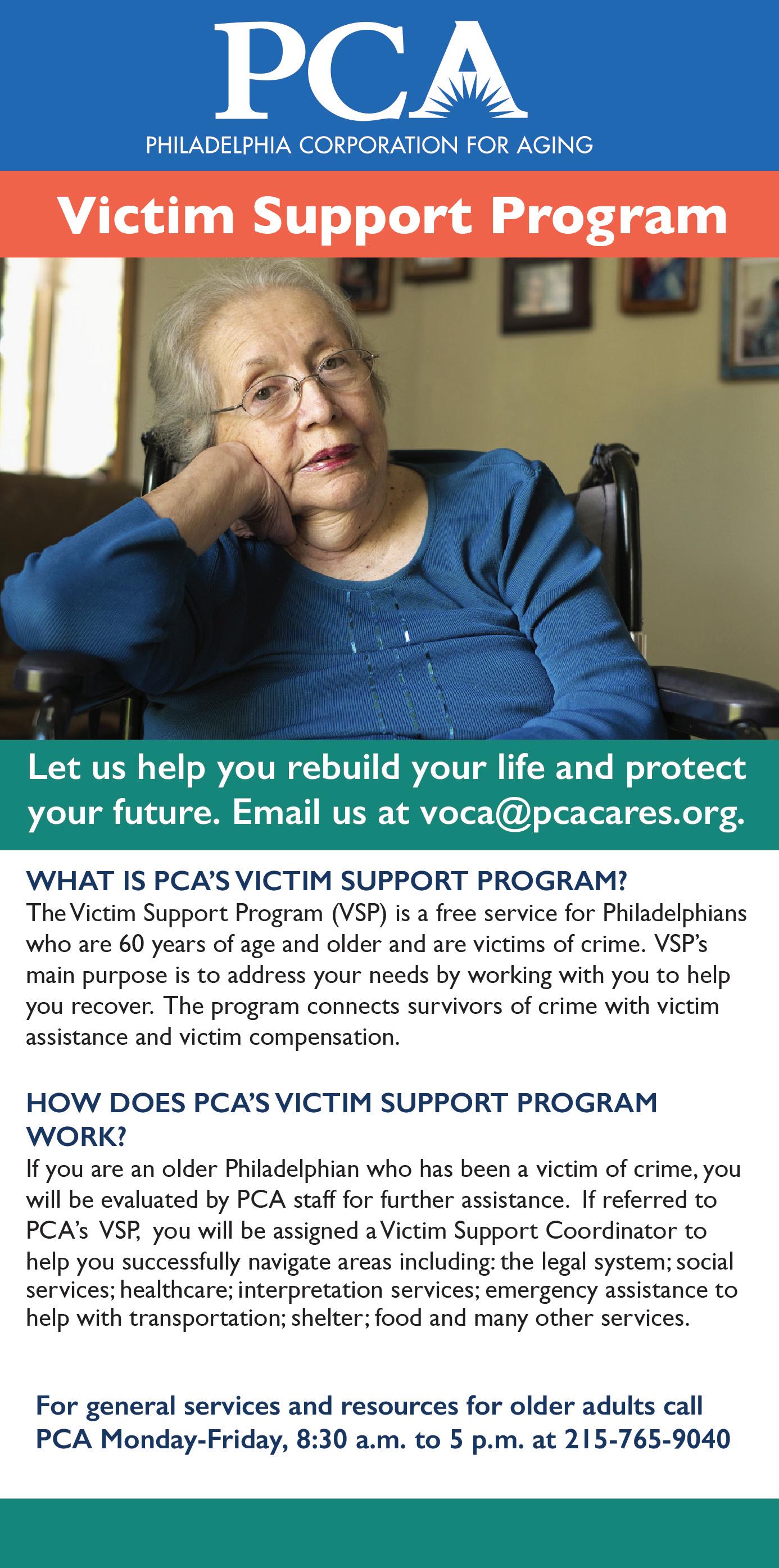

By Jay Nachman
In Philadelphia, more than 242,000 people are food insecure, according to Feeding America, the largest hunger relief organization in the U.S. In fact, many of our neighbors go to bed hungry reports the city’s Office of Homeless Services.
Thankfully, a multitude of local hunger-relief organizations are working to combat food insecurity. Philadelphia’s 700 food pantries and soup kitchens feed over 480,000 people each year. If you or someone you know needs help keeping food on the table, here are some resources that can assist.
Formerly known as “Food Stamps,” this program helps low-in-
come households have access to healthy foods through grocery stores around the state. Currently, there are more than 350,000 older adults in PA utilizing the program. To learn more about SNAP, call the PCA Helpline at 215-7659040.
The Commodity Supplemental Food Program (CSFP) provides USDA-donated food to older adults with low incomes by providing monthly “Senior Food Boxes.” Philabundance packs and distributes 4,500 boxes to strategically chosen locations throughout the Delaware Valley, ensuring that older adults have access to shelf-stable foods to last them throughout the month. Each box contains approximately 30 pounds of canned and boxed food, includ-
non-meat protein. A nutritional newsletter containing recipes and information is included in each box. You can call 800-468-2433 to apply.
Philabundance features a “Find Food” directory of 350 social service agencies that distribute free food to all corners of the city. For information, call 215-339-0900 or go to philabundance.org.
PCA provides healthy, delicious pre-made meals to older Philadelphians and adults with disabilities through its grab-and-go, and home-delivered meals programs. For more information, call the PCA Helpline at 215-765-9040.
ing vegetables, fruit, juice, pasta, milk, cereal, canned meat, and
C(Continued on Page 12)
Temple University is seeking adults aged 60 to 85 to participate in a hearing research study. The focus of the study is to examine our ability to perceive and understand speech in noisy conditions. Testing will take place on the Temple University campus. Compensation provided for eligible participants. For more information, contact the Speech Perception and Cognition (SPAC) Lab 215-204-1478 or spaclab@temple.edu Speech Perception and Cognition Lab Jing Shen PhD, Principal Investigator
(Continued from Page 11)
For those interested in the fellowship that congregate meals provide, PCA helps support 28 senior community centers and satellite meal sites across the city that provide meals for community residents. For more information you can call the PCA Helpline at 215-765-9040 to identify your local senior center offering congregate meals and so much more.
Nutrition is vital to improve health, especially for people who need nourishment to heal from a serious illness. MANNA cooks and delivers nutritious meals to residents in the Greater Philadelphia area. MANNA’s meal program is a temporary service. The qualifications for service and the amount of time that each client receives MANNA meals is based on individual needs and determined by MANNA’s Nutrition and Client Services Department. For information or to apply, go to mannapa.org or call 215-496-2662.
Food distribution sites provide supplemental food for Philadelphia individuals and families. All city residents are eligible. No ID or proof of income is required. For locations and other information, go to phila.gov/food. The website features a directory of food sites, general meal sites, older adult meal sites and student meal sites. You can also call 311 (within Philadelphia) or the WhyHunger Hotline at 1-800-5HUNGRY. Text your ZIP
code to 1-800-548-6479 to receive a list of nearby food pantries. To locate food and other resources in your area, you can also go to CommunityResourceConnects.org.
Select local food pantries
• Homework Internet Communication for Urban People: 6132 Vine St. | 267-974-3672
• Holy Temple Community Center: 363 N 60th St. | 215476-4999
• Holsey Temple CME Church: 5305 Germantown Ave. | 215-848-2210
• Herbert Arlene Food Pantry: 1513 N Bouvier St.. | 215239-4920
• Redeemer Health Food Pantry of PA: 12265 Townsend Rd. | 215-856-1370
• For additional food resources, access the City of Philadelphia’s Food and Meal Finder at 311 or phila.gov/food.
At the peak of the growing season, The Food Trust operates a large network of farmers markets in Philadelphia that makes fresh produce more affordable. (A small number of locations are open yearround.) These markets accept SNAP (formerly food stamps) and EBT cards, Food Bucks (fruit and vegetable coupons), and Senior Farmers Market Nutrition Program (see article on page 13) vouchers. For information, go to TheFoodTrust.org/farmers-markets or call 215-575-0444.

This classic sautéed vegetable mixture has long been a favorite side dish. In July, you can make this recipe using in-season, Pennsylvania-grown fresh corn, lima beans, and peppers.
Ingredients:
1 bunch scallions, chopped
1 red bell pepper, seeded and chopped
2 cups baby lima beans, fresh or frozen
½ cup parsley, chopped 1/3 cup basil, chopped
4 cups fresh sweet corn (cut off 5 cobs)
2 tbsp. olive oil
½ tsp. smoked paprika
¼ tsp. crushed red pepper (optional)
3-4 cloves garlic
1 tsp. salt
¼ tsp. black pepper
Directions:
Chop all the fresh produce and herbs, separating the scallions into greens and whites.
Place a large, cast-iron pan over medium heat. Add olive oil, scallion whites and garlic.
Sauté for 2 minutes. Stir in chopped bell pepper. Stir and sauté for another 2-3 minutes.
Once the peppers are partially softened, add corn kernels, lima beans, smoked paprika, crushed red pepper (if desired), salt and black pepper. Stir and sauté for 5 minutes.
Toss in chopped scallion greens, then add parsley and basil. Taste, then add more salt and pepper if desired.
Traditionally, succotash recipe is served warm or at room temperature. However, in the hot summer months, it can be refreshing chilled in the refrigerator and eaten cold.
(Source: aspicyperspective.com)

By Bill Conallen
Consuming fresh produce is vital for the health and well-being of older adults. The Senior Farmers Market Nutrition Program (SFMNP) helps older adults purchase fresh, locally grown fruits and vegetables. Every summer, Philadelphia Corporation for Aging (PCA) distributes vouchers to up to 36,000 older Philadelphians that can be used to buy fresh produce at certified farmers markets across Pennsylvania.
In 2024, the SFMNP will again provide $50 in vouchers to income-eligible residents of Philadelphia County who are aged 60 or older. These vouchers, issued in $10 increments, can be redeemed until Nov. 30 for produce grown in Pennsylvania or purchased directly from Pennsylvania farmers. The program is funded by the U.S. Department of Agriculture and the Pennsylvania Department of Agriculture.
“This program has significantly improved the health and well-being of older adults,” said Bea Winn, PCA’s assistant director of health and nutrition. “By providing access to fresh, nutritious produce, the program meets older adults’ nutritional needs, boosts the local economy and enhances community connections.”
The benefits of this program are substantial. Older adults are en-
couraged to maintain a diet rich in fruits and vegetables, which supports overall health, reduces the risk of chronic disease and strengthens the immune system. Through the SFMNP, older adults can purchase a wide array of seasonal, locally sourced produce, fostering healthier eating habits and enhancing their well-being. The vouchers help older adults stretch their food budget and save money.
“When older adults redeem their vouchers at farmers markets, they directly support local farmers and bolster Pennsylvania’s agricultural economy,” said Skylar Young, PCA’s special project coordinator, who oversees produce voucher distribution in Philadelphia. “The SFMNP not only benefits older adults but also promotes environmental sustainability by reducing the carbon footprint associated with long-distance food transport.”
Distribution of SFMNP produce vouchers is underway now through Sept. 30, or while supplies last.
Vouchers are distributed at PCA, 642 N. Broad St., on weekdays, from 9 a.m. to 2 p.m., and at other locations. For the latest information about the program and voucher availability, call the PCA Helpline at 215-765-9040 or visit pcaCares. org.
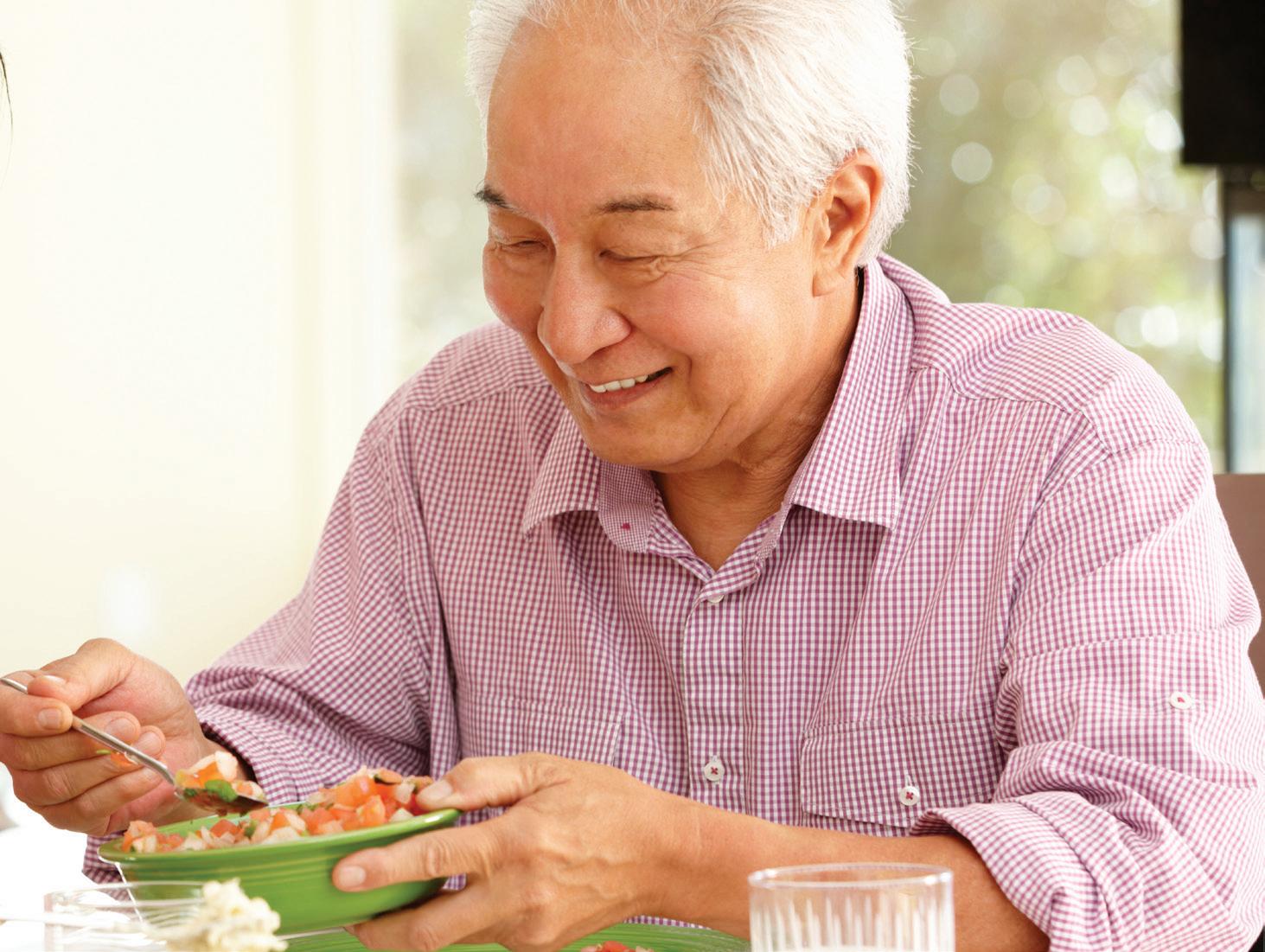
• Reliability: the local resource trusted by thousands of older Philadelphians Philadelphia Corporation for Aging (PCA) offers
Tasty, nutritious options for when you can’t prepare your own meals
• Quality: home-style meals designed with f resh ingredients by a licensed dietitian
• A personal touch: deliveries you can count on by our friendly, dedicated drivers
• Affordability: low-cost or no-cost service, if you qualify
• Expertise: over 50 years of experience caring for your neighbors

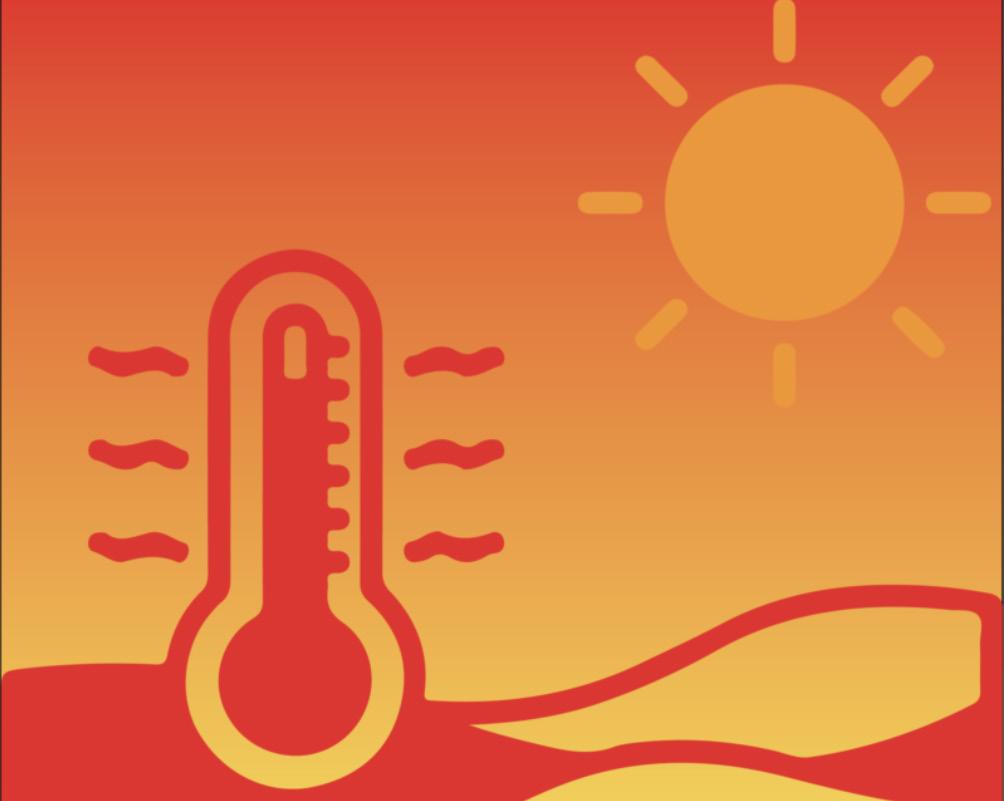
Everyone must be vigilant about heat and how it can affect those who are most vulnerable, including older adults, people with disabilities and children. Philadelphia Corporation for Aging (PCA) encourages all Philadelphia residents to check up on anyone who may be more susceptible to illness during hot weather and especially during heat waves.
PCA offers the following tips to help older adults stay safe in the heat.
Stay cool:
• Avoid direct sunlight.
• Stay in air-conditioned buildings. If your home is not air-conditioned, spend hot days at a senior center, library or a trusted friend/ neighbor’s house.
• Wear light, loose-fitting clothing.
• Drink plenty of water. Do not wait until you’re thirsty. Avoid alcohol, caffeine and sugary drinks.
Seek medical attention for:
• Heavy sweating.
• Headache.
• Weakness, fatigue, dizziness.
• Nausea or vomiting.
• Very high body temperature.
• Confusion.
• Pounding headache.
• Unconsciousness.
When a Heat Health Emergency is declared for the City of Philadelphia, PCA activates its Heatline at 215-7659040 with extended hours to counsel callers of all ages about taking precautions against heat-related illness and detecting signs of heat stress. For more information, call 215-765-9040 or visit pcaCares.org.
For information about the City’s cooling centers, public pools and spray grounds, call 311 or go to Phila.gov.
By Neil R. Manausa
